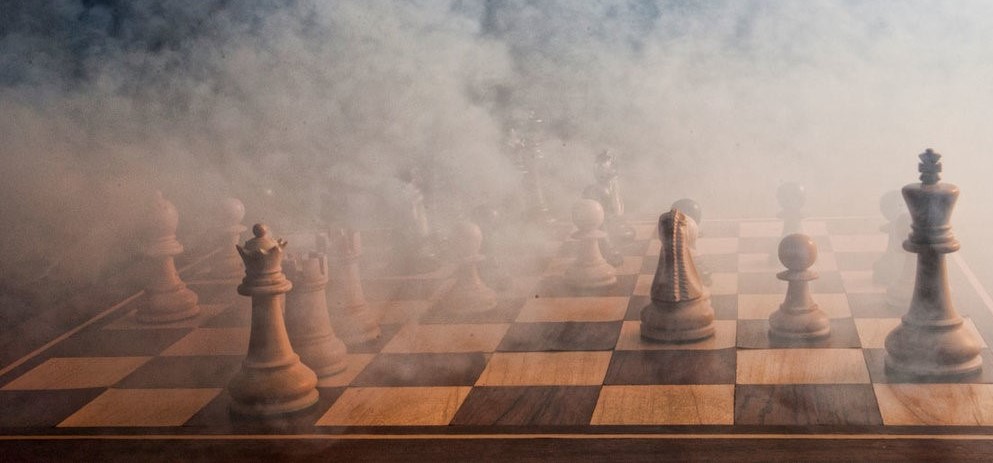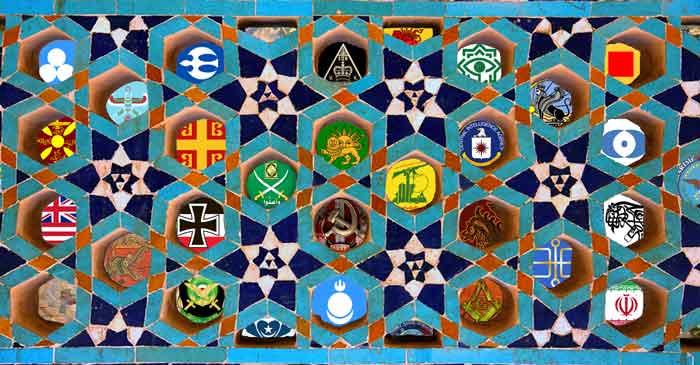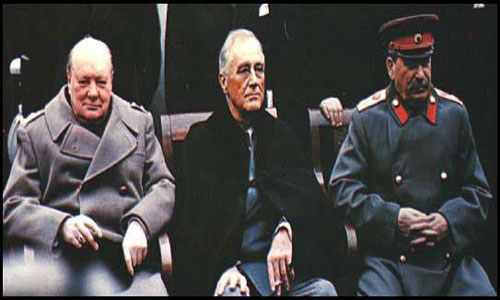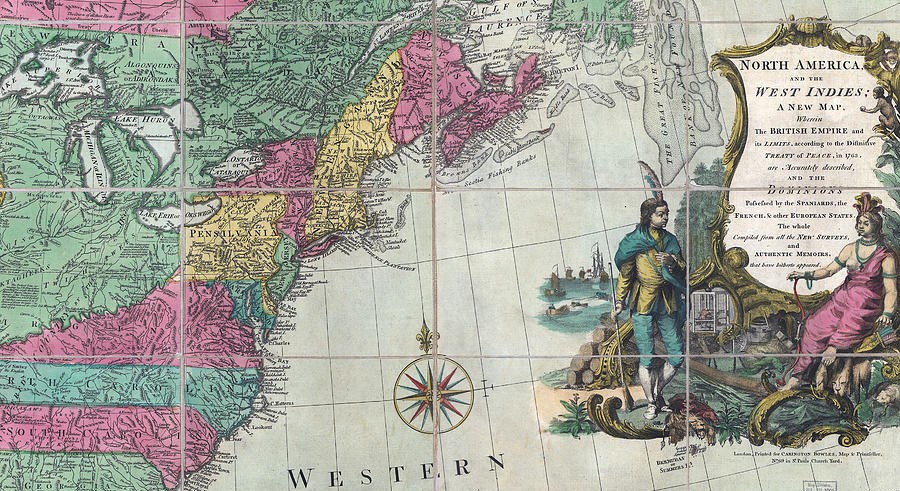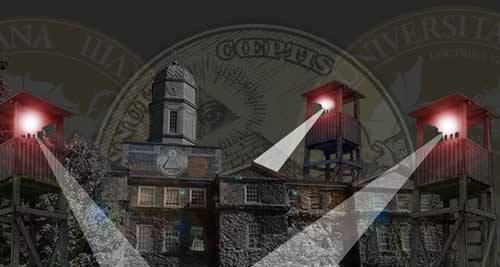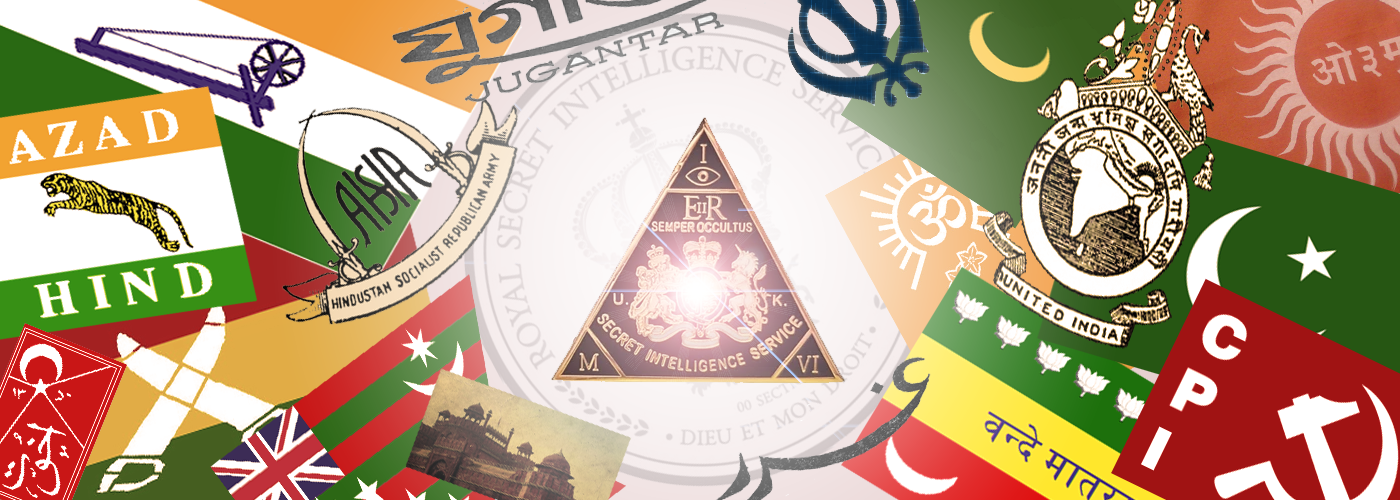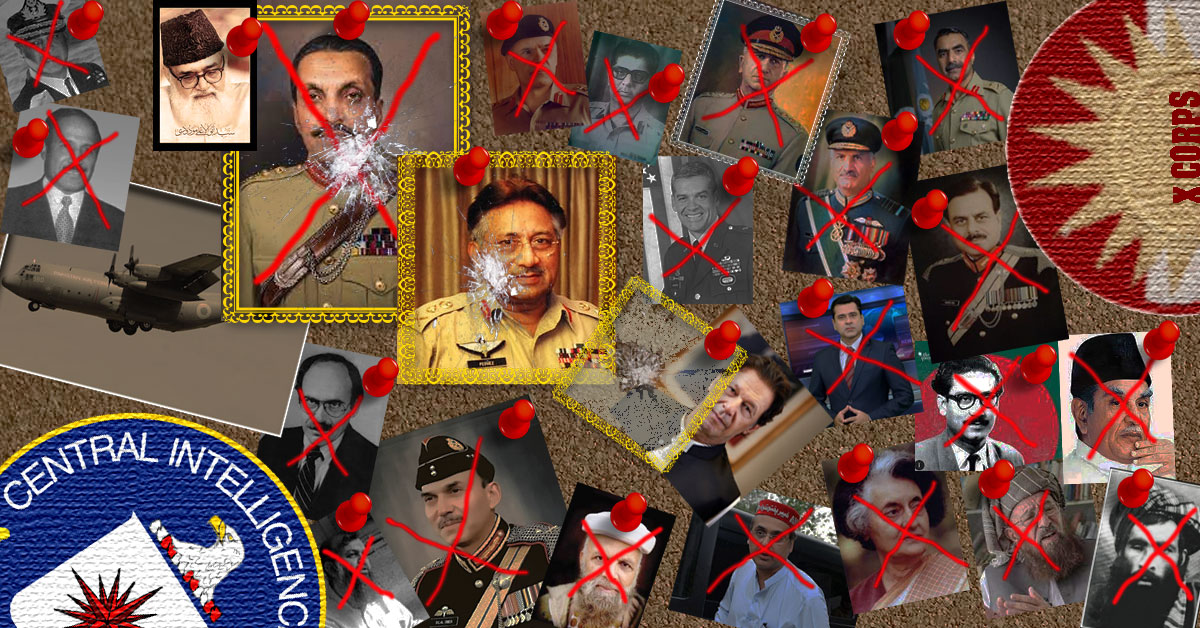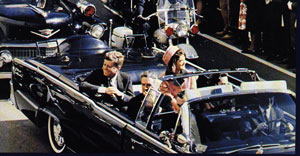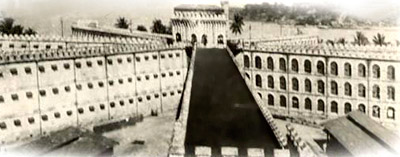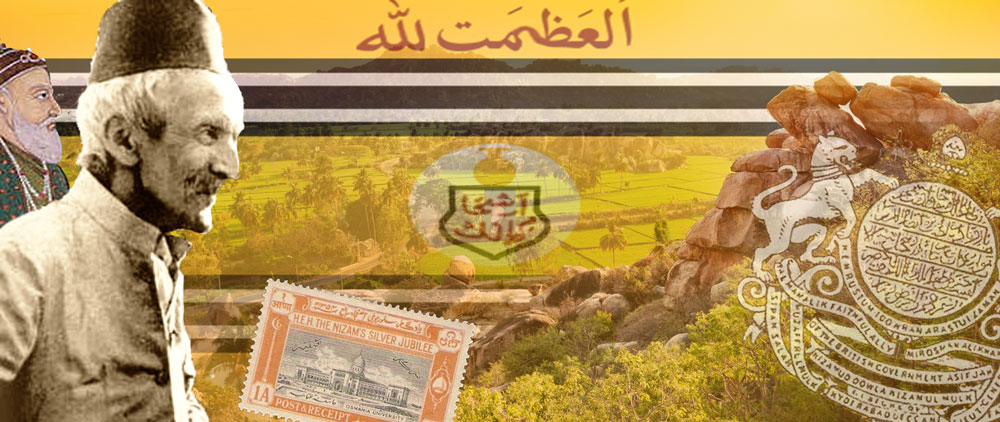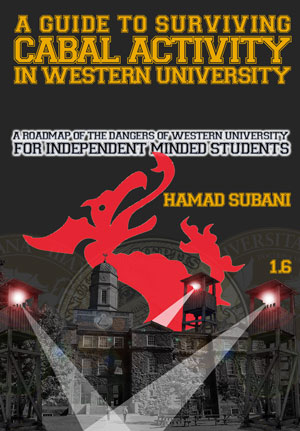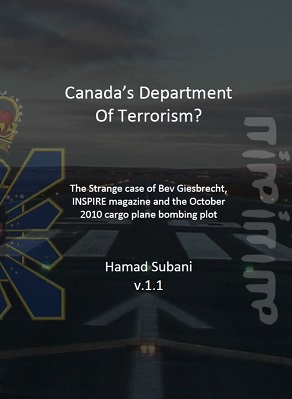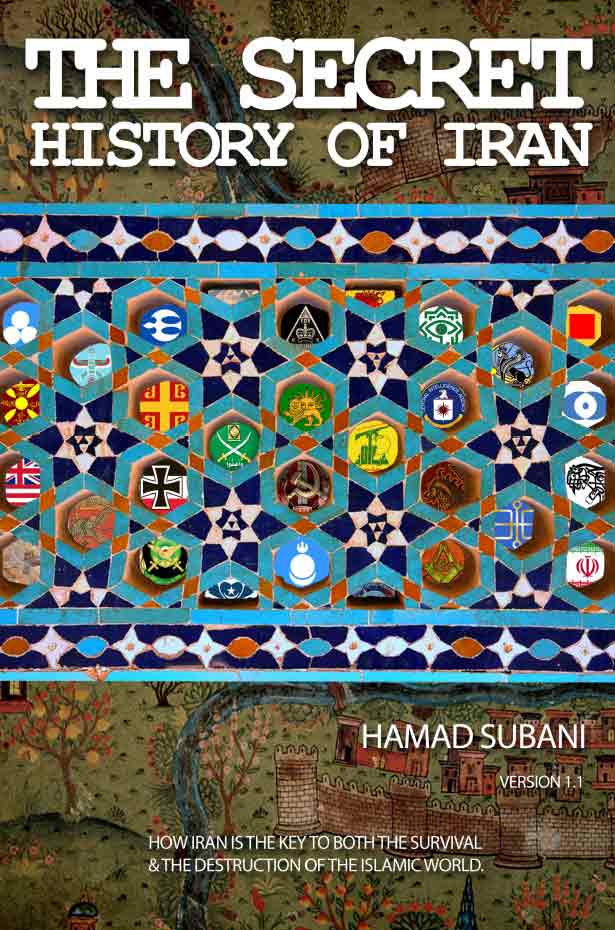Book Review Analysis; Rare Booklet on the Death Sentence of Maududi sheds light on the early history of Pakistan
Last Updated on June 30, 2019 by Hamad Subani
Most people who are tangentially aware of the existence of Islamic political philosopher Syed Abul A’la Maududi (1903-1979) are quick to recall the fact that he was sentenced to death in Pakistan (1953), a sentence which was later lifted due to his popularity. We have managed to obtain a rare 1978 booklet written by his supporters, which specifically narrates this incident. Reading it gives tremendous insights into the shadowy forces at work in the newly created nation of Pakistan.

To make the Partition more palatable to the Muslims, they were sold the hope that the new nation of Pakistan would be an Islamic one. But the Powers That Be had other plans for Pakistan.
It would be an understatement to say that the Powers That Be were up to no good when they Partitioned India on religious lines. To make the Partition more palatable to the Muslims, they were sold the hope that the new nation of Pakistan would be an Islamic one, and thus, the momentous strife and sacrifices the Muslims were faced during Partition did have a silver lining. But the Powers That Be had no intention to follow up on this, because Natural laws and Religious authority ruins the fun for them. They started backtracking on the promise of an Islamic state, even before Jinnah died in 1948. Maududi was skeptical of the Muslim League’s commitment to Islam from the very beginning, because the Muslim League engaged in “Muslim Nationalism,” an oxymoron with no basis in Islamic core values (Islam is supposed to be the antithesis of narrow nationalism). To quote Maududi in September 1940, speaking to an audience at the Aligarh Muslim University,
The national government which has a show-label of Islam on it will prove more dangerous and bold in preventing and hindering the Islamic revolution than an non-Muslim government [……] (p. 21).
We have covered Maududi before on this website, specifically, his grim (but prescient) predictions for the future of the Subcontinent just before the Partition. Seeing the inevitability of the Partition, Maududi had settled in Pakistan to to take part in the ideological battle for the future of Pakistan. There were three important milestones he soon accomplished.
-

Maududi campaigned for Islamic Law and Religious Authority in Pakistan.
Before the Partition, on 26th August 1941, 75 Muslim scholars from different parts of the Subcontinent gathered in Lahore. They aspired for the establishment of the rule of God by abolishing all man-made systems of life. This would be the founding of the Jamaat-i-Islami, and Maududi would remain its elected head for 30 years to come.
- Shortly after the Partition and the creation of Pakistan, Maududi put forward a 4-point demand for the establishment of Islamic rule in Pakistan. As his demand picked momentum, the Muslim League Government responded by jailing Maududi on 4th October 1948, and he remained imprisoned for 20 months. During this period, Liaquat Ali Khan was Prime Minister, and Khawaja Nazimuddin was the Governor-General.
- In 1951, 31 renown scholars from all over Pakistan and representing all different Islamic schools of thought gathered in Karachi and worked out 22 principles for an Islamic Constitution. This project was piloted by Maududi. Now Malik Ghulam Muhammad was the Governor-General.

Governor-General Malik Ghulam Muhammad was behind the Death Sentence. Two years later, he would emerge as the Destroyer of Constitutional Government in Pakistan, paving the way for an American-backed military takeover.
We have seen in another article on this website that Governor-General Malik Ghulam Muhammad was a indeed a shady character, complete with shady origins. How he ended up becoming the last Governor-General of Pakistan remains anyone’s guess. The then Prime Minister of Pakistan was Mohammad Ali Bogra. Both Bogra and Ghulam Muhammaad appear to be in cahoots rather than competitors. Bogra is credited with setting up the Supreme Court of Pakistan as a rival to the Islamic clergy, even giving it power to decide if a law was un-Islamic or not. During this time, it is clear that real power rested with Ghulam Muhammad though.
On 28th March 1953, the military surrounded the office of the Jamaat-i-Islami in Lahore. Maududi was told he was being arrested under the Safety Act, and he complied without questioning them. He was soon escorted to a jail. After rummaging through the files of the Jamaat-i-Islami for several weeks, they could not find anything that could be used against Maududi (they did happily pocket the cash they could lay their hands on though (p. 7)). They had originally planned to use the Safety Act (a provision of the British Penal Code) against Maududi (p.14). But having failed to find unaccounted sources of income, a new script would have to be written. The mastermind of the charade Governor-General Malik Ghulam Muhammad flew to Lahore on a chartered plane on 3rd May 1953. That evening, it was announced on radio that Maududi would be tried under “Martial Law,” which implies the lack of any valid law (p. 16). The Military Court in Lahore needed to cook up some excuse, and they found one in one of Maududi’s pamphlets entitled The Qadiani Problem.

Why were supposed non-Muslims like Muhammad Zafarullah Khan active in the quest for Partitioning British India in the name of “Muslim Nationalism”?
Note that this pamphlet was now being used as a diversion, since no genuine cause to arrest Maududi could be found. In 1952-53, there was growing agitation against the Ahmadiyya/Qadiani people of Pakistan. This was a shady cult, with historical links to the British. They advocated a new Islam, in which the Prophet would be substituted by their leader. Since such a transgression could not be entertained within the limits of Islamic thought, the polite thing for them to do was to identify as non-Muslims. Yet for mysterious reasons, they insisted on not just being identified as Muslims, but also being given political leadership over Muslims. A case point is that of the noted Ahmadiyya Chaudhry Sir Muhammad Zafarullah Khan. Prior to the Partition, he was one of the most vocal proponents for the creation of Pakistan through Partition and led the case for a separate nation in the Radcliffe Commission. He would soon emerge as Pakistan’s top diplomat. In January 1953, 33 leading scholars of Islam assembled in Karachi and proposed that the Ahmadiyya/Qadiani people of Pakistan be formally classified as a non-Muslim minority, and that a seat should be reserved for them in the Central Assembly, indicating formal approval of their minority status. Maududi’s pamphlet emphasized the importance of this proposal through several cogent arguments. But the proposal was getting stonewalled, and soon enough, anti-Ahmadiyya riots erupted in Lahore. Martial law was declared in Lahore. But the Military Court in Lahore could not use Maududi’s pamphlet against him, because it was published before the imposition of martial law. So they drafted a new “Regulation No. 24,” which authorized them to try “offenses” committed before the imposition of martial law! (p. 15).

Lahore’s British era Central Jail was chosen as the venue for Maududi’s trial. This was the same jail where Freedom Fighters were once prosecuted. The new Raj was swooping down on its new enemies.
A 20 page charge-sheet was prepared and Maududi’s trial started on 8th May 1953 (p. 16-17). The location chosen by the Powers That Be was the Central Jail of Lahore, a place where the British prosecuted Freedom Fighters. He shocked everybody by taking full responsibility for his words, written and unwritten (p. 19), declining legal advice to the contrary. The verdict was as follows:
Seven years rigorous imprisonment for your [Maududi’s] statements published in The Daily Tasneem, and three years to Malik Nasrullah Khan Aziz as the Printer and Publisher of The Daily Tasneem. Nine years to Sayyed Naqi Ali, as the Publisher of the book Qadiani Problem, and for the crime of writing this book, Maulana Abul A’la Maududi is awarded Death Sentence (p. 25).
But by then, plans had been put in motion to permanently bury not just the possibility of Islamic rule in Pakistan but also the constitutional government of Pakistan.
Maududi refused to appeal it, saying that he had not committed any crime in the first place (p. 27). He also requested his family not to make any such appeal (p. 41-42). Maududi was moved to a special cell where he would be hanged. He seemed the least perturbed (p. 31). Two days later, his Death Sentence was commuted to Life Imprisonment. After more than two years imprisonment, he was released unconditionally following a High Court Judgement dated 29th April 1955. Governor-General Malik Ghulam Muhammad was still in power, and so was Prime Minister Mohammad Ali Bogra. But by then, plans had been put in motion to permanently bury not just the possibility of Islamic rule in Pakistan but also the constitutional government of Pakistan. Malik Ghulam Muhammad is credited with this constitutional coup that brought the early death of democracy in Pakistan. Feigning Illness, Malik Ghulam Muhammad left for Britain, vacating the post of Governor General to Iskandar Mirza on 7th August 1955. On 7th October 1958, Iskandar Mirza, now the first President of Pakistan, abrogated the 1956 Constitution, dissolved parliament, abolished the Office of the Prime Minister and imposed martial law, which would continue till 1971. Iskander Mirza was a descendant of Mir Jafar, a noted Shiite traitor who helped the British establish a foothold in Mughal Bengal. His mother belonged to the Ismaili Tyabji clan of Bombay.
Given the fact that the same Malik Ghulam Muhammad who destroyed Constitutional Government and Constitutional Law in Pakistan also tried getting Maududi executed, Was the attempted execution of Maududi a part of the same project of destroying Natural/Religious Laws in Pakistan? Was Maududi inadvertently standing in the way of a Western conspiracy to colonize Pakistan?
Of the 881,913 square kilometers that constitute Pakistan, Islamic law is yet to be fully implemented in one square kilometer.
Today, Pakistan has a Constitution and a Constitutional Government, which is overshadowed by the all powerful military. Certain aspects of the British Penal code have been Islamicized, but Islamic law still remains a quandary. In contrast, the rather poor and backward neighboring country of Afghanistan briefly enjoyed a florescence of Islamic law and street-justice (until they got bombed following the so-called War on Terror). Back in Maududi’s days, 89 years of British Raj had driven law out of the hands of religious clerics. The result was a Muslim clergy, who like their Western-Christian counterparts, exist to provide a feel-good contemplation and consolation for people’s inherent and personal “religious needs.” This reality drags on today. Religious clergy are still reluctant to step down from their pulpits and engage in dispensing law and justice on the street level, a practice which is guaranteed to earn them enemies among the rich and powerful (rather than donations and speaking gigs). The result is a Pakistan infamous for its lawlessness. A place where several Ghulam Mohammads operate through Intelligence, and unlike Maududi who atleast got a sham trial, executions take place through assassinations which are never investigated. In cities like Karachi, gangs gun down civilians with impunity. Villages like Hussain Khanwala have gained global notoriety for organized pedophilia. In the North-West frontier province, the staid citizenry is now being terrorized by American and Pakistani drones. Of the 881,913 square kilometers that constitute Pakistan, Islamic law is yet to be fully implemented in one square kilometer. Until then, Pakistan remains a contradiction.
Postscript: An Urban Legend about the Grave of Governor-General Malik Ghulam Muhammad
When Ghulam Muhammad passed away on 29th August 1956, he willed that he buried at Jannat al Baqi, a graveyard sacred to Muslims and dating back to the time of the Prophet of Islam. Since his body could not be immediately relocated to Saudi Arabia, it was interred in a temporary grave at the Military Graveyard (Fauji Qabrastan) near CSD off Shar-e-Faisal in Karachi. This was in line with the Islamic practice of immediately disposing the body, as preserving it outside the grave is forbidden.
What inspired such a change of heart in Ghulam Muhammad is unclear. But despite his power, and his powerful supporters in the Government even after he died, his last will could not be acted upon. It was as if Jannat al Baqi refused to accept him. And the temporary grave ended up being formalized as the official one.

The grave of Ghulam Muhammad at the Military Graveyard (Fauji Qabrastan) near CSD off Shar-e-Faisal in Karachi. © Muhammad Imran Saeed.

The grave inscription of Ghulam Muhammad © Muhammad Imran Saeed.
According to a popular urban legend that still gets reposted on Pakistani Facebook pages, here is what happened. I am unable to ascertain the source of the below Urdu language clipping. It seems to be taken from the web edition of PTV, but the date and author remains undetermined. A translation has been done by me. The believability depends on one’s personal beliefs.

When the former Governor General Malik Muhammad Ghulam’s will was acted upon and his grave was opened, what came out of it?
Islamabad (Pakistan TV dot TV Web Desk) The journey of life and death appears to be based on several years but when one examines one’s own life, it looks like as if it was just yesterday. One’s childhood and youth appear to have passed by so fast as if in a flutter of a breeze or a thunder strike while batting one’s eyelids, time got straddled on a horse and flew away.
Life is the gift of the Creator who gave clear guidance and informed us which path is correct and which is wrong. If you do wrong, hell will be your future and if you do right, you will have a stake in heaven. Allah the Praiseworthy Lord is the Creator of the Universe and his nature is that all he says is “kun” and that happens. It is also true that Allah loves his creation so much that despite showing/telling us everything, he keeps showing us his signs to reform us. We are bringing to our reader’s attention one such case. Famous writer of Pakistan Faiza Nazeera Ahmed wrote in one of her special works that human life is a painting of different events. The events of everyday life can be interesting, cautionary and lesson-learning. Below are some interesting events brought to the readers’ attention to inform them as well as reform them. The first two events pertain to the wills of two different personalities of Pakistan, which could not be fulfilled, and their outcomes were both different and tragic. After reading both these events, readers are free to reach their own conclusions. But they will be surprised at the colors of the workings of nature. On the morning of 23rd May of 1960, the undefeatable, mountain felling, Rustam of his time Gama Pahlwan [A professional Pakistani wrestler related to Nawaz Sharif] fell defeated while leaving his will unfulfilled. Gama Pahlwan was bitten by a very poisonous snake in the early hours of the Ramadan Sehri. Gama Pahlwan was taken to Mayo Hospital on his own tanga [carriage]. This was a very poisonous snake, and had it bitten an ordinary man, the person would have died immediately. But Gama Pahlwan survived initially.
When he became healthy, Gama Pahlwan said that the snake had sank its fangs into his foot but when I pushed it against the ground, it let go, and I felt like I fell in a burning furnace. Gama Pahlwan died from health related issues twelve years later. According to his will, he was to be buried in the precincts of the tomb of Saint Makki. When the grave started being dug there, a woman who managed the tomb informed the Deputy Commissioner that some people were forcibly digging up for a grave in the tomb precincts, and requested that they be stopped. After prolonged arguments, Gama Pahlwan was buried in the graveyard of the Jogi family, and his last wish, which was to be honoured even by his enemy, remained unfulfilled.
When we read about another event, a cautionary tale of tragedy comes forth. On 29th August 1952, Pakistan’s Governor General Malik Ghulam Muhammad died [Wrong date; he died in 1956]. According to his will, he was to be buried in Saudi Arabia, so he was temporarily buried in Karachi (until arrangements could be made). After some time, and as according to the will, preparations were made to remove the body from the temporary grave and shifting it to Saudi Arabia, and one doctor, one army captain, police officers, two labourers and family members of Malik Ghulam Muhammad reached the grave.
Just as the labourers started digging the grave and removing the planks on the casket, they saw a snake circling around the casket. The labourers tried killing it with a club, but it escaped every blow. The Police Sub-Inspector fired 6 shots at it from his pistol, but it dodged them all. As per advice of the doctor, a poisonous spray was used on the grave and it was temporarily closed. Two hours later when digging was resumed, the snake was found circling the casket again. After mutual consultation, the grave was closed permanently. And the next day, a major paper ran a small story which was as follows: “The body of former Governor General Ghulam Muhammad could not be shifted to Saudi Arabia, and will stay buried in Karachi.”


